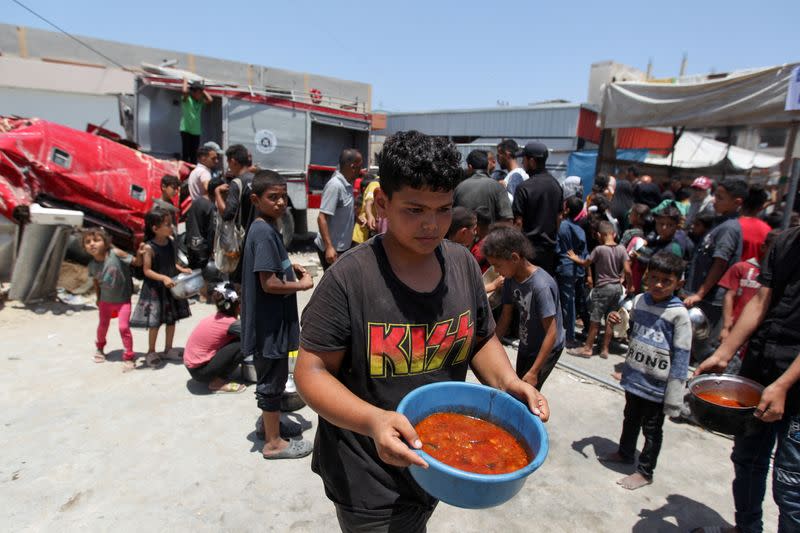Risks to aid workers in Gaza intolerable, UN says

By Michelle Nichols
UNITED NATIONS (Reuters) - The risks to humanitarian workers in Gaza are intolerable, the United Nations said on Tuesday as it pressed Israel for more effective coordination with the aid groups, approval for the U.N. to use essential security equipment and for the Israeli military to facilitate aid deliveries.
"Humanitarian operations have repeatedly been in the crosshairs in Gaza," U.N. spokesman Stephane Dujarric told reporters on Tuesday. "The risks, frankly, are becoming increasingly intolerable."
He said the head of U.N. safety and security met on Monday with COGAT, the Israeli military branch responsible for aid transfers, to discuss U.N. difficulties working in Gaza during the war between Israel and Palestinian militants Hamas.
U.N. Secretary-General Antonio Guterres said last week there is "total lawlessness" in Gaza that is impeding aid operations as famine looms. The United States said it has been working with the U.N. and Israel to try to improve the situation.
"Every day, we assess the situation and look at how we can operate safely, both for our own staff, but most importantly for those who are receiving the aid," Dujarric said. "Every day we need to grab whatever opportunities we can."
Israel's Deputy U.N. Ambassador, Jonathan Miller, told the Security Council earlier on Tuesday that more than 36,000 aid trucks had entered Gaza during the more than eight-month conflict. The trucks carried over 682,180 tons of aid, including food, water, shelter equipment, medical supplies and fuel.
He said the problem was with the collection and distribution of that aid by the United Nations once it entered Gaza.
"Nearly all U.N. requests for the coordination of humanitarian convoys have been, and are being approved, and the daily pauses in operations against terrorists continue to enable the distribution of the aid," said Miller.
(Reporting by Michelle Nichols, additional reporting by Humeyra Pamuk in Washington; Editing by Rod Nickel)

 Yahoo News
Yahoo News 
